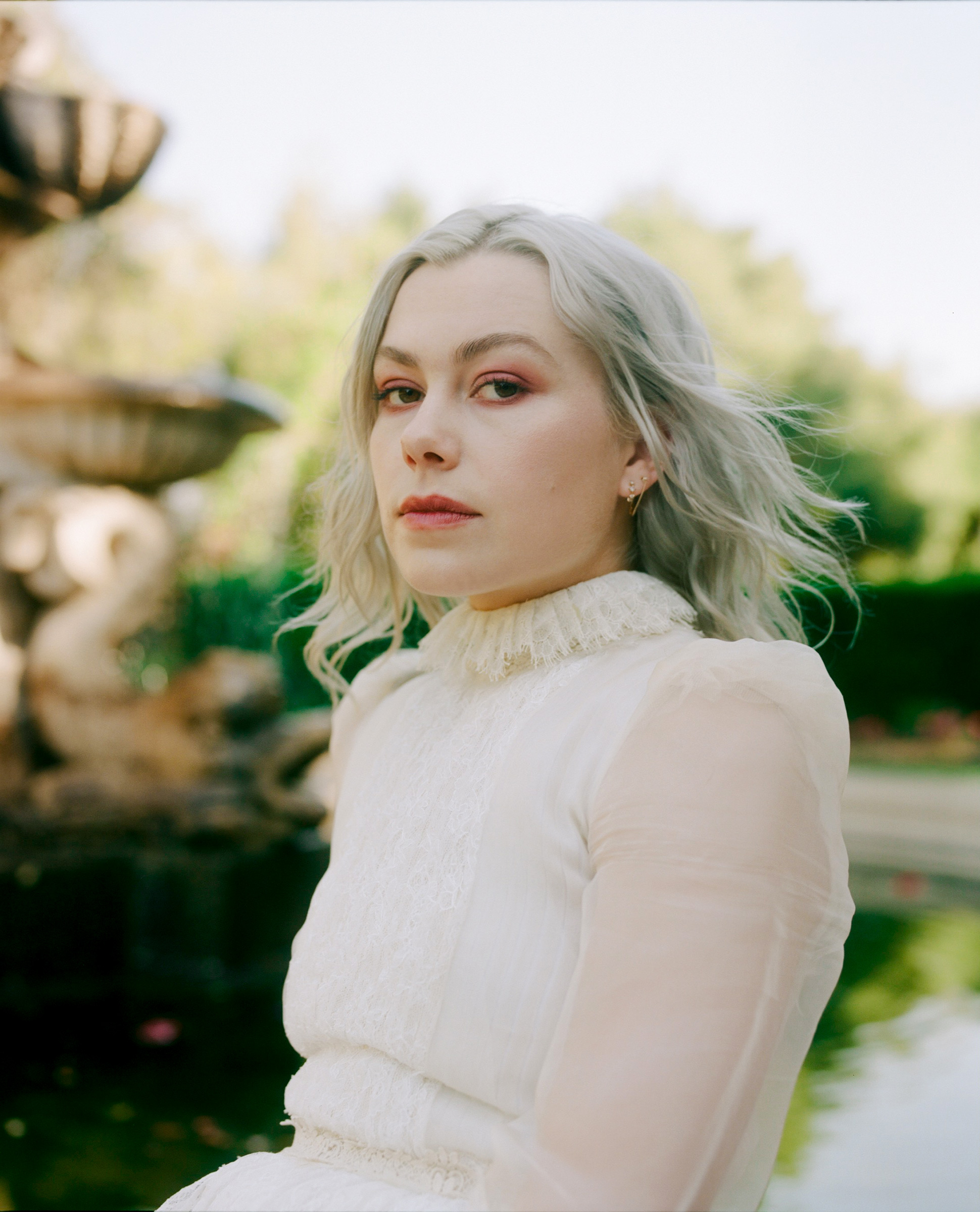She could see them from her perch onstage: a kid and their parents, getting up to leave. It happened at a concert in Florida last year—one of many where Phoebe Bridgers took a moment between songs to share her opinion that abortion is health care. Five years since she launched her career, Bridgers, 28, has a dedicated base of fans who she thinks of as being like-minded; sometimes, speaking out on the issues that matter to her can feel like adding more noise to an echo chamber. But then there are moments like this, when she watches a young person walk away from her, led by adults who probably don’t like her music any more than they like her message. And that’s when she recognizes that her voice has power. “I hope it makes a difference,” says the singer-songwriter. “I hope those parents are going to lose the battle with that kid’s opinions and belief systems.”
Bridgers believes that if you care about something, it’s your responsibility to defend it. The day after the draft decision in Dobbs v. Jackson Women’s Health Organization was leaked, Bridgers posted on Twitter that she’d had an abortion in October 2021 and included a link to a list of funds accepting donations. When Roe v. Wade was officially overturned the next month, she led a crowd of thousands at the Glastonbury Festival in a chant of “F-ck the Supreme Court.” This directness was nothing new for Bridgers, who has used her platform to speak out against politicians she disagrees with, call for police abolition, and show support for trans rights. The day of the 2020 presidential election, she tweeted a promise to cover “Iris” by the Goo Goo Dolls if Donald Trump lost. After Joe Biden’s win was confirmed, she dropped the track, which she recorded with Maggie Rogers, and directed all proceeds toward Stacey Abrams’ voting-rights organization.
Since then, Bridgers has catapulted to indie-rock stardom. In 2021, she was nominated for four Grammys, including Best New Artist. That year, she kicked off the world tour for her 2020 album Punisher. She’s also been leading her record label, Saddest Factory Records, boosting the careers of artists like MUNA and Claud. At the end of March, she’ll release a new album, The Record, with boygenius, the supergroup formed by Bridgers, Julien Baker, and Lucy Dacus. And in May, she’ll join Taylor Swift for 12 stops on the stadium tour that broke Ticketmaster. “I try not to think about it that hard or I’ll freak out,” she says.
Bridgers’ albums provide a cathartic soundtrack to those coming of age in a world that so often feels like it’s falling apart. Through haunting songs that range from mellow to explosive, she nails the strange and specific sadness that accompanies living in an overwhelming time—and the toll that takes on a person’s mental health.
While her songs speak to universal feelings about love, loss, and growing up, they are also deeply personal. She has described her breakthrough single “Motion Sickness” off her debut album Stranger in the Alps as being about her relationship with former partner and collaborator Ryan Adams, with the gutting opening lines, “I hate you for what you did/ And I miss you like a little kid.” In 2019, she told the New York Times that Adams was “obsessive and emotionally abusive.” (Adams told the Times it was a “brief, consensual fling.”)
That relationship had a formative impact on her art, and speaks to her ability to take the challenges of life and hold them up to the light. “Strangely, well, not strangely—life is complex—Ryan Adams sent me a really long email once about how I needed to write the truth, because it’s the only thing that’s interesting about me,” Bridgers says. The advice was mind-blowing to her at the time and, she says, changed her life. Her creative process involves mining the secrets she keeps from even herself, to powerful effect. “The more honest I am,” she says, “the world just keeps opening up for me.”
More Must-Reads from TIME
- Cybersecurity Experts Are Sounding the Alarm on DOGE
- Meet the 2025 Women of the Year
- The Harsh Truth About Disability Inclusion
- Why Do More Young Adults Have Cancer?
- Colman Domingo Leads With Radical Love
- How to Get Better at Doing Things Alone
- Michelle Zauner Stares Down the Darkness
Write to Annabel Gutterman at annabel.gutterman@time.com





